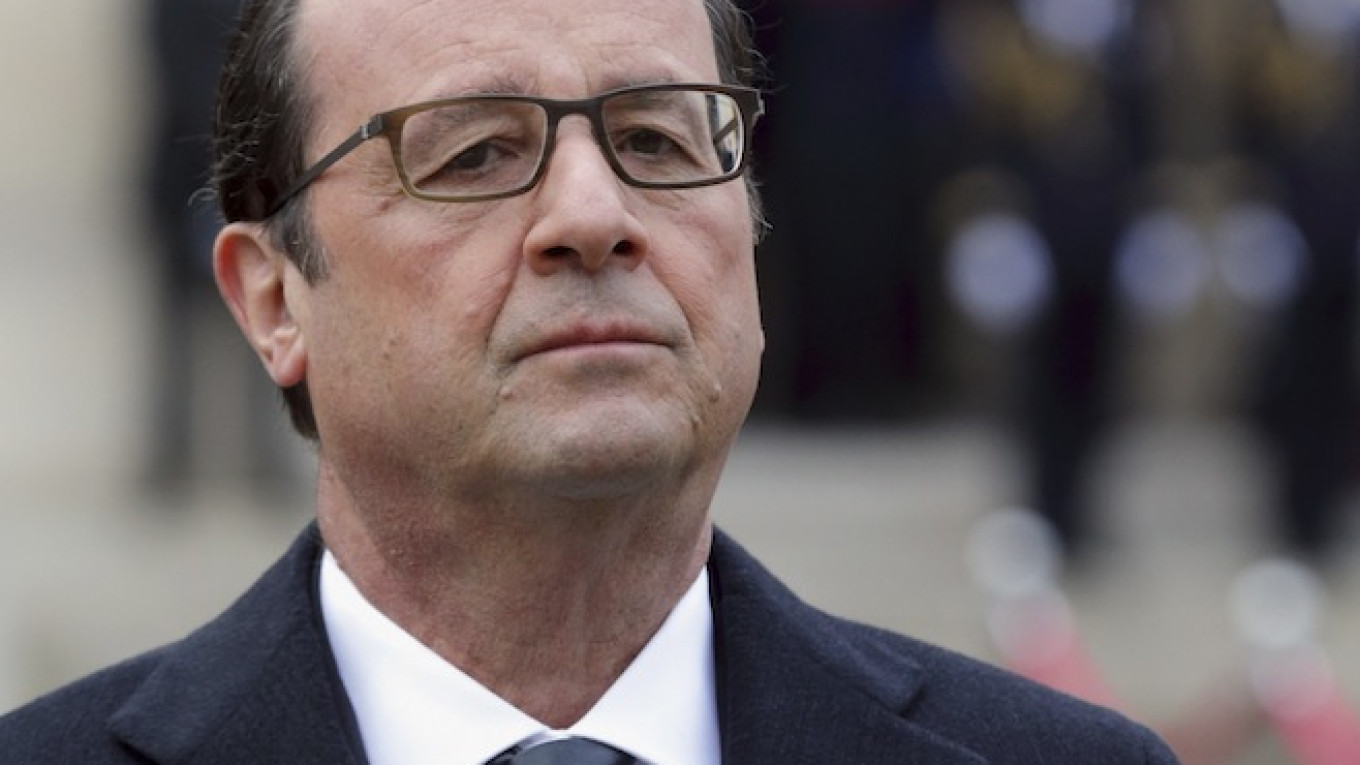French President Francois Hollande urged Vladimir Putin on Friday to look to the future rather than the past to help ease tension over the Ukraine crisis.
In a policy speech on Thursday, Putin evoked the lessons of history to shift the blame for many of Russia's problems onto the West, accusing "enemies of yesterday" of trying to bring a new Iron Curtain down around Russia.
"As for the declaration by Mr. Putin, who went back to the past in his speech, we should concentrate on the future — while not forgetting the lessons of the past," Hollande said through a translator at a news conference during a visit to Astana, the capital of Kazakhstan.
"The tension, the pressure at the moment can in no way serve as a solution to problems," he said, suggesting that he, Putin, Ukrainian President Petro Poroshenko and German Chancellor Angela Merkel should "start the process of reducing tension" together. He gave no details.
More than 4,300 people have been killed in eastern Ukraine since the separatist rebellions erupted there in April, soon after Russia annexed Crimea from Ukraine following the overthrow of a Moscow-backed president.
Hollande last month suspended indefinitely the delivery of the first of two Mistral helicopter carriers ordered by Russia because of the conflict in Ukraine.
Speaking beside Kazakh President Nursultan Nazarbayev, Hollande said any proposals to end the violence should be based on the principle agreed in a Sept. 5 cease-fire agreement.
He said that meant "the principles of territorial integrity, a cease-fire and decentralizations of the eastern regions."
Nazarbayev, a Putin ally, said sanctions imposed on Russia by the United States and the European Union over the crisis in Ukraine would have only a limited effect.
"One should not underestimate Russia's might," he said. "This is the biggest country by size and the richest nation."
A Message from The Moscow Times:
Dear readers,
We are facing unprecedented challenges. Russia's Prosecutor General's Office has designated The Moscow Times as an "undesirable" organization, criminalizing our work and putting our staff at risk of prosecution. This follows our earlier unjust labeling as a "foreign agent."
These actions are direct attempts to silence independent journalism in Russia. The authorities claim our work "discredits the decisions of the Russian leadership." We see things differently: we strive to provide accurate, unbiased reporting on Russia.
We, the journalists of The Moscow Times, refuse to be silenced. But to continue our work, we need your help.
Your support, no matter how small, makes a world of difference. If you can, please support us monthly starting from just $2. It's quick to set up, and every contribution makes a significant impact.
By supporting The Moscow Times, you're defending open, independent journalism in the face of repression. Thank you for standing with us.
Remind me later.


